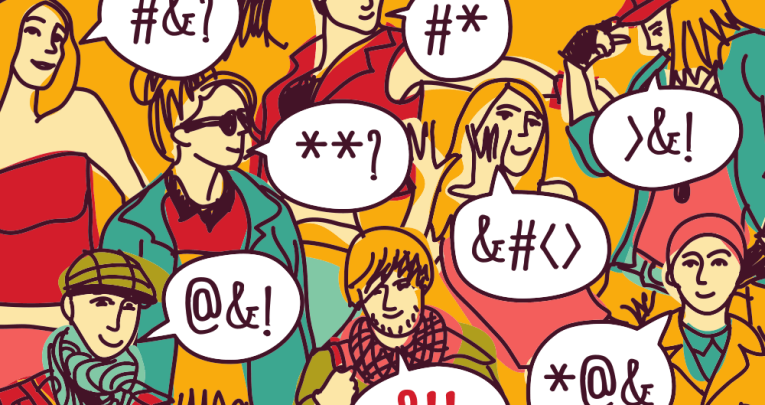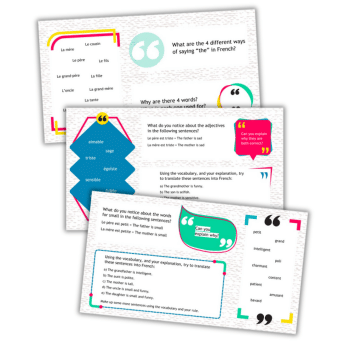Creative Ways to Make Vocabulary Learning Stick in Secondary School

Try Garry Britton’s creative ideas to help students retain those all-important word lists…

Learn the list for a test next week. How many times was I told that by my language teachers, and how often have I asked my students to do the same? Well, it worked for me.
I’d go home, copy out the list, and use the traditional look/cover/say/check method. I’d even take another glance at the words I didn’t know just before going to sleep, to memorise them overnight.
It was an effective enough approach for a natural language learner – but of course, different students learn differently; and there is so much more we can offer them by way of vocab support. Here’s just one idea: how about make/play/swap/repeat?
Make…
…all kinds of things with your vocab list. Ask students to come up with five or 10 anagrams. Spanish hace frio/ hace calor could become each fori/ each rocal. This helps focus on spelling. Model a gap-fill sentence where one or more words from the list fit; students then create their own sentences.
Double-sided flashcards take a little time to create but can be used again and again. Mini-quizzes can get students thinking: five letters, opposite of long in French = court. Short multiple choice questions are quick to write and answer. These are all good classroom activities in pairs or groups.
This is also where technology is a bonus. Websites and apps such as Studystack and Quizlet encourage students to enter their own lists of words and definitions.
With a purpose to the exercise, this seems more appealing than just copying. The lists then create flashcards and a variety of games such as matching, anagrams and hangman, along with different types of quiz.
Those words not learnt are recorded and stored to be practised next time. Flipquiz can also be used to create simple online quizzes that replicate paper ones, but in a more fun, ‘gameshow’ kind of way.
Play…
…the games created by students. After the making phase, representing the first stage of learning, playing physical and virtual games repeatedly is an ideal way to consolidate learning.
Some games such as Studystack and flashcards lend themselves to individual work or homework, but many others need to be played in pairs, so that students test or help each other on their anagrams or quizzes.
Other games can be played with groups or with the whole class. My favourite to use with a class has always been the memory game my grandmother went to market and bought … eine Pizza, eine Currywurst, einen Jogurt, etc.
Sorting and classifying activities also work well with small groups – for example, which group can be the first to sort two jumbled lists into their original ‘sports’ and ‘clothes’ categories.
Swap…
…the games with other students. This makes for endless variation and variety, saving you precious preparation time. Whereas pair A may have made and practised a quiz on parts of the body in Spanish, pair B could have made gap-fill sentences using the same word list.
By simply swapping activities, vocabulary learning can be reinforced in stimulating ways – before boredom sets in! Again, swapping can be made easy with technology: in Quizlet, students can access each others’ lists with a link, or play games against each other to gain the best score.
Repeat…
… as many games as often as possible. Once made, most games will only take 10 minutes, so could be useful as starters, or in the middle of a long class as a ‘break’.
Virtual games can be used on phones on the way to school. An easy class starter is to write previously-learned vocabulary with definitions on both sides of sticky notes, placing them on the table nearest the door.
Even better, use student-made flashcards. As students come in, they can take away a note or card they know. These can be swapped and reposted later in the class as part of another activity.
There’s a new kid on the block, too: Youtube video. Whether you want vocabulary from Spanish song lyrics, advanced French current affairs, or German beer festivals, you’ll be able to find it online. Or at least, your students will; another vocabulary game you can leave to them.
Garry Britton (@Linguagenius) teaches literacy and study skills, and develops the use of technology in teaching. For more helpful and practical advice for teaching vocab skills in KS3 and KS4 check out 8 Great Ways to Improve Vocabulary Skills in Secondary Schools.












